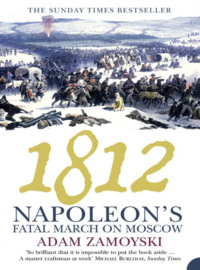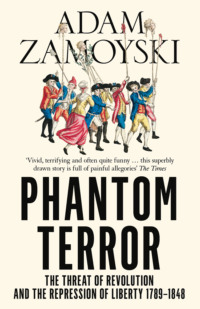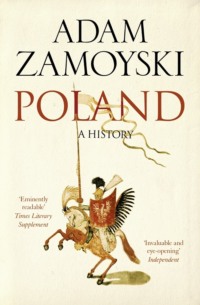
Полная версия
Rites of Peace: The Fall of Napoleon and the Congress of Vienna
It was a curious way to proclaim a crusade for legitimacy against the usurper, and Frederick William’s chancellor, Hardenberg, for one, was afraid that ‘this appeal to the passions of the day, even to democratic ideas, so unexpected on the lips of two absolute monarchs, could lead to grave problems in the future’. That was to prove something of an understatement. The two monarchs had in effect adopted the language of the French Revolution and the methods of Napoleon, thereby undermining their own credibility and robbing themselves of the only weapons they would be able to use against the unwonted passions they were arousing.17
3 The Peacemakers
Nobody was more alarmed by the new alliance between Russia and Prussia than the Austrian Foreign Minister, Count Klemens Wenceslas Lothar von Metternich, and no power stood to lose more by radical developments in Germany than Austria. She was, in a different way from Prussia, possibly the most vulnerable political unit in Europe.
Her sovereign had been crowned in 1792 as the Holy Roman Emperor Francis II. Besides this prestigious but empty role, he had inherited the huge antiquated realm of the house of Habsburg, an accretion of centuries of conquest, diplomacy and dynastic marriage. It was not long before he had to start ceding outlying provinces of this to Revolutionary France – the Austrian Netherlands (present-day Belgium), Lombardy and the left bank of the Rhine in 1797; Venice and Illyria, as well as the Tyrol, given to France’s ally Bavaria, in 1805. The Holy Roman Empire itself was dissolved by Napoleon in 1806, and its sovereign became Emperor Francis I of Austria.
In 1809 an ill-judged attempt to recover some of his provinces while Napoleon was busy fighting in Spain cost him Salzburg, the remains of his possessions along the Adriatic and part of his Polish provinces. He was also forced to seal the ensuing peace by giving Napoleon his favourite daughter Marie-Louise in marriage. He was then obliged to participate in Napoleon’s invasion of Russia in 1812 with a 30,000-strong Austrian auxiliary corps under Prince Schwarzenberg. He was still, at the beginning of 1813, an ally of France.

Habsburg losses, 1792–1810
While both Francis and Metternich were eager to disengage Austria from this alliance and to see French troops and influence excluded from Germany, they also had much to fear from change of any kind. Francis’s much-reduced empire was strategically vulnerable, as it was open to attack from every direction. It had no national base, and included large numbers of Slavs, Magyars and other nationalities. The only cement binding this heterogeneous mass together was the monarchy itself, the house of Habsburg. This made it ideologically vulnerable as well. The Enlightenment, the French Revolution and its Napoleonic legacy brought into question everything that made up the monarchy: the execution of the French King Louis XVI in 1793 insulted the divine status of kingship so central to the Habsburg state; the idea of the sovereignty of the people undermined the paternal absolutism on which the monarchy was predicated; and the concept of nationhood put in question its territorial basis.
In the circumstances, the proclamations issuing from Russian headquarters were a cause for alarm in Vienna. They threatened to arouse revolutionary and nationalist passions that could produce reverberations within the Habsburg dominions. More ominously, they suggested Alexander’s intention of exerting an influence over the affairs of Germany, which were of vital interest to Austria. At the same time, the proclamations had a similar effect on all the greater and lesser rulers of the region, and this was likely to make them turn to Austria for protection and make common cause with her against Russia in determining the future of Germany.
Metternich believed that a durable peace could only be achieved if the centre of Europe could be rid of the threat of foreign domination and placed under the twin protection of Prussia and Austria. While this required the exclusion of both French and Russian influence from Germany, it also required their preservation as checks on each other’s ambitions. Although he and his country were in an extremely dangerous position, he set out to engineer just such a peace. He did not believe the task to be beyond him.
The Austrian Foreign Minister’s most striking characteristic was his vanity. In the words of the eminent nineteenth-century historian Albert Sorel, ‘Metternich was in his own opinion the light of the world, and he blinded himself with the rays reflected in the mirror he held up continuously before his eyes. There was in him a chronic hypertrophy of the ego which developed relentlessly.’ He was in every sense the centre of his own universe. He would write endlessly about what he had thought, written and done, pointing out, sometimes only for his own benefit, how brilliantly these thoughts, writings and doings reflected on him. This egotism was buttressed by a monumental complacency that was proof against all experience.1
Metternich was hard-working, honest and cultivated, and not devoid of humour, though of a somewhat ponderous kind. He was very cautious, with plenty of what he used to refer to as ‘tact’, by which he appeared to mean the ability never to get so far involved in anything as to be unable to pull out. This made him a perfect diplomat and a formidable negotiator. He knew how to make people believe they were getting their own way while he led them, at their own pace, towards the goal chosen by him. If not highly intelligent, he was very perceptive. Above all, he knew what he wanted, and pursued his aims with dogged consistency.
He was physically handsome, innately elegant and distinguished-looking, but slightly spoiled the effect by fussing too much over his hair and his clothes. Possessed of considerable charm, he was amiable and very sociable, which made him popular in any drawing room. He loved music, which often reduced him to tears. Though not exactly raffish, he had an eye for the ladies, and could be seductive when he wanted. During his lifetime he found his way into the bedrooms of some of the greatest beauties of the age. Having triumphed, he as often as not lapsed into the role of sentimental lover. He would pour out his feelings in mawkish letters and flaunt them in curiously adolescent ways – when he was having an affair with Napoleon’s sister Caroline Murat in 1810 he ostentatiously wore a bracelet fashioned from her hair.
His career was meteoric. Born in the Rhineland in 1773, he studied at the universities of Strasbourg and Mainz. At Frankfurt in 1792, at the age of nineteen, he witnessed the coronation of Francis II as Holy Roman Emperor, an event that left a lasting impression. After brief trips to Vienna and London he married Leonore Kaunitz, the daughter of Maria-Theresa’s renowned chancellor, and in 1801 took up his first diplomatic post, as the Emperor’s minister to the Saxon court in Dresden.
From there he was sent as ambassador to Berlin, where he negotiated the treaty between Austria, Russia and Prussia in 1805, the foundation of the Third Coalition. When that had been defeated he was sent, at Napoleon’s request, to Paris as Austria’s ambassador. When war broke out between the two countries in 1809 he was first held hostage in Paris and then given the task of negotiating the peace, which included arranging the marriage of Marie-Louise to Napoleon. That same year he was made Austrian Foreign Minister, a post which he was to hold for the next thirty-nine years.
Metternich was in every sense a product of the ancien régime, believing in a natural order of things, based on established religion, monarchy and a defined hierarchy. He viewed any change as potentially revolutionary, and feared the middle classes, as they tended to nourish aspirations which they could not satisfy without displacing others or changing the rules and destroying existing institutions. The French Revolution he saw as the greatest catastrophe to afflict Europe, and he had a natural tendency to despise Napoleon as its product. Yet he admired him for his achievements and, more importantly, valued the fact that he was an effective source of authority who had contained the forces of chaos in France and might – if only he could be contained himself – be a useful partner in the preservation of the ‘natural order’ in Europe. Indeed, he rated Napoleon higher on this scale of usefulness than he did many legitimate monarchs.
‘The world is lost,’ Metternich had written to his friend Friedrich von Gentz back in 1806, after Napoleon had abolished the Holy Roman Empire. He could barely disguise his horror at the Frenchman’s doings and his abhorrence of his whole ‘system’. At the same time he came to appreciate the usefulness of the Rheinbund, with which Napoleon had replaced the Holy Roman Empire, as a basis for the emergence of a more independent Germany. And he did not subscribe to the view that Napoleon must be got rid of at any cost.2
Metternich hoped that the disasters of the Russian campaign would have sobered Napoleon enough for him to realise that his best option was to abandon his dream of a pan-European French Empire and make peace as soon as possible – a peace that Metternich would broker, with attendant advantages to Austria. In order to achieve this, and to keep his options open, he had to somehow extricate Austria from her alliance with France and adopt ‘a system of active neutrality’.3
Metternich feared the formation of a new coalition against France, as he foresaw that Russia would be its driving force and therefore its leader; and what he feared even more than a restoration of French hegemony over Europe was its replacement by a Russian one. At the same time, he realised that if Russia and France did come to negotiate directly, they might well end up dividing Europe between them, cutting Austria out of the deal.
In December 1812, through Bubna, he offered Napoleon Austria’s good services in helping France make peace with Russia. He held out the vision of a strong France retaining many of the gains she had made since 1792, a neutralised Germany watched over jointly by France and Austria, with Russia and Prussia held in check in the east. The future of French conquests in Italy was left vague, as Austria and France could settle that question between themselves at a later date.
Although Napoleon dismissed Bubna’s proposals with bluster about his intention to march out in the spring and beat his enemies into submission, Metternich did not despair of bringing him round. At the same time, he began to make preparations for all eventualities. The Treaty of Schönbrunn, which he had brokered himself between France and Austria in 1809, had limited the size of the Austrian army to 150,000. But, assuming that Austria would continue as his ally and expecting to need a larger auxiliary corps soon, Napoleon now encouraged its increase, and Metternich seized the opportunity to order rapid mobilisation of all available forces. He also continued to deepen his dialogue with Russia and other powers.
Metternich knew that Napoleon’s ultimate aim was a satisfactory settlement with Britain, and that without one no peace he made with any other powers could be considered final. He shared the opinion, common throughout Europe, that Britain was a self-interested power of marginal importance on the Continent, and he could not disguise a certain exasperation with her apparent arrogance, but he felt she must be brought into the proceedings in the interests of all. In February 1813 he sent an unofficial envoy, Count Wessenberg, to London to sound out the British cabinet on whether it would agree to enter into negotiations under Austrian mediation.4
The mission was doomed to failure. Since Marie-Louise’s marriage to Napoleon, the view from London was that Austria was a close ally of France and therefore not worth keeping up even unofficial links with. In that year the Foreign Office had stopped paying Friedrich von Gentz, one of its most reliable informants in Austria since 1802. Under the circumstances, the arrival of Wessenberg was seen in London as some kind of intrigue. In matters of foreign policy, the British cabinet was beset by outdated prejudices.5
The eighteenth-century view of France as a monstrous and diabolical arch-enemy bent on the destruction of England still prevailed. Another inherited perception was that Britain’s natural allies were Russia, Prussia and Sweden. This was based on the notion that Russia was, like Britain, an ‘unselfish’ power as far as Europe was concerned, and that there were no possible grounds for conflict between the two; that Sweden’s interests lay in making common cause with Britain; and that as a northern Protestant power and an erstwhile enemy of France, Prussia must be a sympathetic ally of Britain.
In point of fact, Russia resented Britain’s supremacy at sea and foresaw conflict of interest not only over the Balkans and Constantinople, but also in the Mediterranean and, more far-sightedly, over southern Asia. One of the reasons many within the Russian military and political establishment were unwilling to pursue the Grande Armée beyond Russia’s frontiers and bring about the total defeat of France was that they suspected Britain would end up as the main beneficiary. These considerations were backed up by economic rivalry and widespread ill-will stemming from a belief that Britain’s aggressive trading practices constituted an obstacle to the development of the Russian economy.
So while Britain saw Russia as a natural ally, Russia saw Britain as a rival. Her repeated offers to mediate a peace settlement between Britain and the United States were thinly-disguised attempts to shore up the position of the latter, particularly as a naval power that could act as a counterbalance to Britain on the seas, and in the process put in question Britain’s cherished ‘maritime rights’. And while Russia opened her ports to all when she broke away from Napoleon’s Continental System, she imposed cripplingly high duties on British traders.6
Sweden had not shown herself a reliable ally at any stage in the past two decades, and although her ships and ports did flout the Continental System and continued to trade with Britain, she had, in 1810, opportunistically elected the Napoleonic Marshal Jean-Baptiste Bernadotte as Crown Prince and effective ruler. Prussia too had played a disappointing role. She had fought alongside the French more often than against them, and had perfidiously helped herself to Hanover, a possession of Britain’s royal house.
In 1812 Britain acquired a new Foreign Secretary, Viscount Castlereagh. But he was not the man to take a different view or alter policy drastically. He had been born plain Robert Stewart, the son of an Ulster landowner of Scottish Presbyterian stock. His father had become a member of the Dublin Parliament, married well (twice) and made the most of his connections, becoming Baron Londonderry in 1789, Viscount Castlereagh in 1795, Earl of Londonderry in 1796, and would progress to Marquess of Londonderry in 1816.
Young Robert Stewart, who was born in the same year as Napoleon, was prone to all the enthusiasms of his age. He admired the American rebels who had thrown off English rule, he sympathised with the French Revolution, and entered Irish politics as an enthusiastic patriot, drinking toasts to ‘the Gallic Constitution’, to ‘the People’, and even on one occasion to ‘the rope that shall hang the King’. But trips to France and Belgium in 1792 and 1793 dampened his enthusiasm for things revolutionary, and as he grew up the dour pragmatism of his paternal forebears began to assert itself over the romantic attitudes derived from his aristocratic mother’s.
In 1796 he not only inherited the title of Viscount Castlereagh, he also took command of five hundred men to oppose a threatened French landing at Bantry Bay which meant to liberate Ireland from the English yoke. Two years later, in 1798, he played an active part in suppressing the Irish rebellion, and he was one of the most determined architects of the Union with England of 1801, making liberal use of bribery in order to achieve it. He had betrayed all the fancies of his youth in favour of law and order, which he had come to see as the greatest benefit in public life. This was perhaps not surprising, as by now he had plenty to protect. In 1802 he was nominated President of the Board of Control of the East India Company, and in 1805 he became Secretary of State for War in William Pitt’s cabinet. He had arrived at the very heart of the British political establishment.
But it would be wrong to see Castlereagh’s change of heart as a self-interested volte-face. It stemmed from his acceptance of Pitt’s conviction that illegitimate revolution could never bring the kind of stability necessary for the development of civil society, and was reinforced by the common sense that came with age. Nor did it come without a struggle. There can be little doubt that Castlereagh worked hard at reining in the impetuous side of his nature, which occasionally revealed itself in heated words and, most spectacularly, in his challenging George Canning to a duel in 1809 over their political differences.
By his mid-thirties he had become a paragon of middle-class values. He was happily married, abstemious and ordered in his habits, drinking little and rising early, never happier than when he could leave London to spend time on his farm at Cray in Kent, where he indulged his love of gardening and animal husbandry. He enjoyed the company of children. He was kind to servants and generous to the poor. He was industrious and conscientious in his work. He took his ease with books and indulged himself with music, which he loved, playing the cello and singing whenever the opportunity presented itself.
His tenure at the War Office, which came to an end in 1809, had not been deemed a success. His one achievement was to bend rules in order to have General Arthur Wellesley appointed to command the expeditionary force being sent to the Iberian peninsula in 1808. But its benefits did not become apparent until a few years later when, as Lord Wellington, Wellesley won the first decisive British victories over the French. In 1812 Castlereagh became Foreign Secretary, a post altogether better suited to his talents.
Castlereagh was a very able man. He could grasp the complexities of a problem quickly, along with its possible ramifications, and he could write it up in clear, elegant prose. But he was not an original thinker. He knew nothing of European affairs, and lacked the imagination to see what was happening on the Continent. He had imbibed his views on foreign policy from his hero Pitt, and he would remain faithful to them.
When he took over at the Foreign Office Britain was entirely isolated, with no influence on the European mainland. His first actions were therefore aimed at finding allies on the Continent and building up a coalition against Napoleon. Napoleon’s invasion of Russia in the summer of 1812 played into his hands, and in July of that year Castlereagh concluded a treaty of alliance with Russia which bound the two countries to help each other in their attempts to bring about the defeat of France.
This was of little comfort to Russia, whose armies were fleeing before the triumphant Grande Armée, and who had to face up to the possibility of other enemies seizing the opportunity to recover lost lands. One such was Turkey, with whom Russia made a hurried peace. Another was Sweden, from which she had taken Finland only three years before, and which would almost certainly wish to recover it. Had Sweden invaded at that moment, Russia’s defences would probably have collapsed entirely.
Tsar Alexander opened negotiations with Bernadotte and arranged a personal meeting, at Åbo. In the course of the discussions Alexander managed to convince Bernadotte to let Russia keep Finland, in return for which he would help Sweden take Norway from Denmark, an ally of France. He also undertook to persuade Britain to give Sweden one of the colonies she had taken from France. He did everything to charm the renegade French Marshal, and in order to seal their entente he threw out another piece of bait, the prospect of Bernadotte’s ascending the throne of France once Napoleon had been defeated.
Shortly after, Castlereagh opened negotiations with Sweden, which culminated in the Treaty of Stockholm, signed on 3 March 1813. The terms were extraordinarily generous to Sweden. Britain undertook to assist her in taking possession of Norway, with military support if the King of Denmark were to prove recalcitrant, to cede her the former French West Indian island of Guadeloupe, and to pay her the sum of £1 million, in return for which Sweden promised to field 30,000 men against Napoleon.7
News of the signature of the Treaty of Kalisch between Russia and Prussia on 1 March 1813 was greeted with joy in London, but Castlereagh was less than thrilled. Britain had not been consulted on the subject of the projected treaty, which suggested that Russia felt she could act independently of her British ally. It also meant that Castlereagh had no idea what secret clauses the treaty might contain. And the fact that Britain, Russia, Sweden and Prussia were now aligned against France did not in itself amount to a coalition. Even were that so, experience taught that coalitions were vulnerable to the slightest reversal of fortune.
The first coalition against France had come together in 1793. It combined Austria, Russia, Prussia, Spain and a number of lesser powers. This formidable alliance proved ineffectual when faced with the élan of France’s revolutionary armies, and it fell apart in 1796. A second coalition, consisting of Britain, Russia, Austria and Turkey, was cobbled together in 1799, but this disintegrated after the French victories of Marengo and Hohenlinden. A third, painstakingly constructed by Castlereagh’s mentor William Pitt in 1805, combined Austria, Russia, Sweden and Prussia with Britain, but this too was shattered by Napoleon’s victories at Austerlitz, Jena and Friedland. The one allied victory, Trafalgar, had failed to affect the outcome.
By 1807, when he signed a far-reaching alliance with Russia, Napoleon controlled virtually the whole of Continental Europe, making it impossible for Britain to play any part in its affairs, except in Portugal, where a small expeditionary force hung on precariously. Although she was supreme on the seas, much of the advantage this gave her was negated by a tariff war with France. Napoleon’s Continental System excluded the British from trading with any part of Europe, and eventually led to the outbreak of war between Britain and the United States of America.
As he contemplated the possibility of the birth of a new coalition in the spring of 1813, Castlereagh was acutely aware of both the need to direct it and the lack of means at his disposal. Britain’s military capabilities were already stretched to breaking point by the double commitment of fighting one war with France in Spain and another with the United States of America across the Atlantic, so all he could contribute was money. And money could not buy sufficient influence to impose unity on a diverse set of allies.
Britain had always been concerned first and foremost with naval matters, and it was only when the armies of Revolutionary France advanced into the Austrian Netherlands in 1792 and threatened to take the estuary of the river Scheldt that a hitherto indifferent Britain felt impelled to go to war. The Scheldt estuary and the port of Antwerp had traditionally been viewed in Whitehall as the ideal base for an invasion of England, and the very thought of their falling into French hands was the stuff of nightmare. Provided the entire Netherlands could be kept in friendly or neutral hands, Britain had no interest in what form of government France saddled herself with. This divided Britain from her allies in the first coalition, who saw it as more of a monarchical crusade against revolution. In time, Britain’s views on the subject of France converged with those of her Continental allies, yet significant differences remained. And any coalition was vulnerable to underlying resentments and a distrust based on mutual incomprehension of each other’s strategic imperatives.










